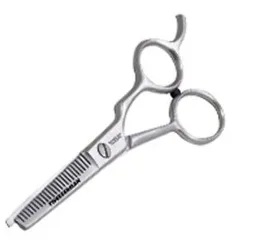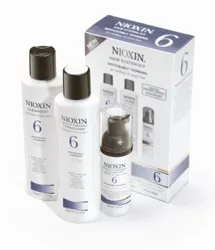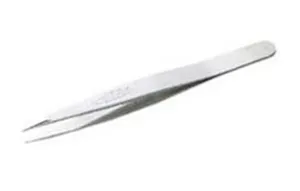
My Hair's Thinning Fast So What Should I Do?

Question
Dear Karen,
I am a 45 year old woman with graying hair who has been suffering from sudden and extreme hair loss. As a result I've started seeing a doctor who specializes in hair loss diagnosis and treatment.
He has suggested that I undergo a battery of tests to determine what physical issues might be causing the hair loss. I have not heard of many of the tests and wonder if they are all necessary.
Can you please give me a list of the most common diagnostic tests which are recommended?
Thanks,
Marsha T.
Answer
Dear Marsha,
Although there may be some obvious causes, if sudden hair loss can't be explained easily, it's best to work with a physician who specializes in hair loss diagnosis and treatment.
There are many reasons for sudden hair loss and sometimes it can be tricky to figure out the exact causes. In order to treat your hair loss, it's important for your physician to understand what may be the underlying causes.
Every hair loss expert has their own diagnostic tools they prefer to use. If your doctor recommends diagnostic tests, unless there is some obvious reason why you can't do the tests then it would be wise to agree in order to get some answers.
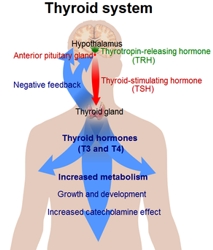
Hair Loss Diagnostic Tests
Physicians who specialize in hair loss diagnosis may suggest a range of diagnostic tests to try and nail down the physical causes of sudden hair loss. Not all doctors will recommend the same tests depending on what they feel would be most appropriate for your current hair loss symptoms.
Listed below are some examples of tests hair loss specialists might perform to determine if you're suffering from abnormal hormonal or thyroid levels which could be contributing to hair loss challenges.
Diagnostic Thyroid Tests For Hair Loss Analysis
There are 2 types of thyroid hormones easily measurable in the blood, thyroxine (T4) and triiodothyronine (T3). For technical reasons, It's easier and less expensive to measure the T4 level, so T3 is usually not measured on screening tests.
Please be clear on which tests are suggested for you. There tends to be some confusion with doctors and nurses with the "Total T3", "Free T3" and "T3 Uptake tests" . There is a reason they can be confusing, but it's important to note that they are not the same test.
T3 Resin Uptake or Thyroid Uptake: This is a test that confuses doctors, nurses, and patients. First, this is not a thyroid test, but a test on the proteins that carry thyroid around in your blood stream. Not only that, a high test number may indicate a low level of the protein! The method of reporting varies from lab to lab. The proper use of the test is to compute the free thyroxine index.
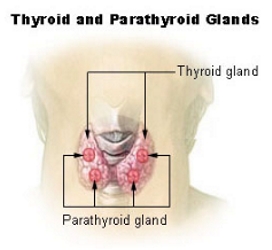
Thyroxine (T4): This shows the total amount of the T4. Also known as Serum Thyroxine T4. High levels may be due to hyperthyroidism, however, technical artifact occurs when estrogen levels are higher from pregnancy, birth control pills, or estrogen replacement therapy. A Free T4 (see below) can avoid this interference.
Free Thyroxine Index (FTI or T7) : A mathematical computation allows the lab to estimate the free thyroxine index from the T4 and T3 Uptake tests. The results tell us how much thyroid hormone is free in the bloodstream to work on the body. Unlike the T4 alone, it is not affected by estrogen levels.
Free T4 : This test directly measures the free T4 in the blood rather than estimating it like the FTI. It is a more reliable, but a more expensive test. Some labs now do the Free T4 routinely rather than the Total T4.
Total T3: This is usually not ordered as a screening test, but rather when thyroid disease is being evaluated. T3 is the more potent and shorter-lived version of thyroid hormone. Some people with high thyroid levels secrete more T3 than T4. In these (overactive) hyperthyroid cases the T4 can be normal, the T3 high, and the TSH low.
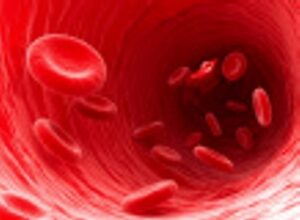
The Total T3 reports the total amount of T3 in the bloodstream, including T3 bound to carrier proteins plus freely circulating T3.
Free T3: This test measures only the portion of thyroid hormone T3 that is "free", that is, not bound to carrier proteins.
Thyroid Stimulating Hormone (TSH) : This protein hormone is secreted by the pituitary gland and regulates the thyroid gland. A high level suggests your thyroid is underactive, and a low level suggests your thyroid is overactive. This is also known as Serum thyrotropin/thyroid-stimulating hormone (TSH).
Other Thyroid tests and/or measurements may include, but not be limited to:
Serum triiodothyronine T3, Radioactive iodine-123, Radioiodine scan (gamma camera) - thyroid contrasted images, Thyroid hormone binding ratio (THBR), Thyroxine-binding globulin TBG,
TRH stimulation test Peak TSH, Serum thyroglobulin l Tg, Thyroid microsomal antibody titer TMAbThyroglobulin antibody titer TgAb.
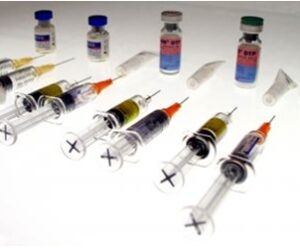
Tests To Measure Glucose
The following tests may also be recommended in some cases if blood sugar is suspected as a culprit:
Glycohemoglobin (Hemoglobin A1 or A1c, HbA1c) : Glycohemoglobin measures the amount of glucose chemically attached to your red blood cells. Since blood cells live about 3 months, it tells us your average glucose for the last 6 - 8 weeks.
A high level suggests poor diabetes control. Standardization for glycohemoglobin from lab to lab is poor, and you cannot compare a test from different labs unless you can verify the technique for measuring glycohemoglobin is the same. The only exception is if your lab is standardized to the national DCCT referenced method. You can ask your lab if they use a DCCT referenced method.
Complete Blood Count (CBC): The CBC typically has several parameters which are created from an automated cell counter. Listed below are the most relevant:
White Blood Count (WBC) is the number of white cells. High WBC can be a sign of infection. WBC is also increased in certain types of leukemia. Low white counts can be a sign of bone marrow diseases or an enlarged spleen. Low WBC is also found in HIV infection in some cases. Note: The vast majority of low WBC counts in our population is NOT HIV related.
Hemoglobin (Hgb) and Hematocrit (Hct) : The hemoglobin is the amount of oxygen carrying protein contained within the red blood cells. The hematocrit is the percentage of the blood volume occupied by red blood cells. In most labs the Hgb is actually measured, while the Hct is computed using the RBC measurement and the MCV measurement. Thus purists prefer to use the Hgb measurement as more reliable.
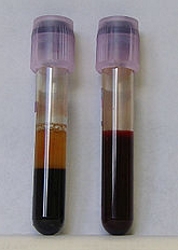
Low Hgb or Hct may suggest an anemia. Anemia can be due to nutritional deficiencies, blood loss, destruction of blood cells internally, or failure to produce blood in the bone marrow. High Hgb can occur due to lung disease, living at high altitude, or excessive bone marrow production of blood cells.
Mean Corpuscular Volume (MCV): This helps diagnose a cause of an anemia. Low values suggest iron deficiency, high values suggest either deficiencies of B12 or Folate, ineffective production in the bone marrow, or recent blood loss with replacement by newer (and larger) cells from the bone marrow.
Platelet Count (PLT) : This is the number of cells that plug up holes in your blood vessels and prevent bleeding. High values can occur with bleeding, cigarette smoking or excess production by the bone marrow.
Low values may occur from premature destruction states such as Immune Thrombocytopenia (ITP), acute blood loss, drug effects (such as heparin), infections with sepsis, entrapment of platelets in an enlarged spleen, or bone marrow failure from diseases such as myelofibrosis or leukemia. Low platelets also can occur from clumping of the platelets in a lavender colored tube. You may need to repeat the test with a green top tube in that case.
The various tests listed above may be very helpful for a hair loss specialist who is studying any health issues ranging from thyroid or hormonal to anemia which could be causing any type of sudden hair loss.
It's important to note that any of the above tests should only be ordered through a physician or other hair loss specialist.
Best wishes,
Karen Shelton
AskKarenBy submitting your question, you grant full permission to HairBoutique.com to publish it. Due to the volume of mail we receive, Karen regrets that she cannot respond to every question personally.
To AskKaren a question, send an e-mail to: askkaren@hairboutique.com
Social Media Network Information
Please follow us on Twitter at: https://Twitter.com/HairBoutique. I look forward to meeting new people from all walks of Twitter and learning from their Tweets.



